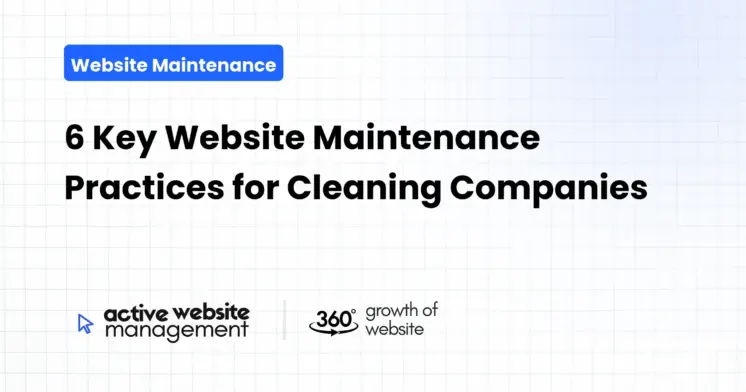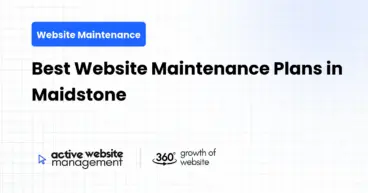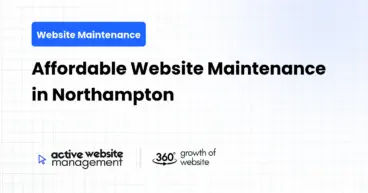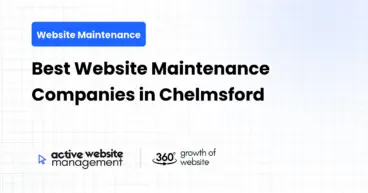January 24, 2025
14 min read
Your website is often the first impression potential clients have of your cleaning company. Just like a spotless home or office, a well-maintained website projects professionalism, reliability, and trustworthiness. Neglecting your online presence is like leaving cobwebs in the corner; it’s detrimental to your brand. This guide explores six key website maintenance practices crucial for cleaning service companies to not only attract new clients but also retain existing ones. Think of these practices as essential cleaning supplies for your digital space.
1. Regular Content Updates: Keeping Your Site Fresh and Engaging
Imagine walking into a cleaning company’s office that hasn’t been dusted in weeks. That’s what a stale website feels like to visitors. Regular content updates are vital to keeping your online space sparkling. Search engines and, more importantly, potential clients, favor websites that offer fresh, engaging, and relevant information.
Why Content Updates Matter
- Boosts SEO: Search engines like Google prioritize websites with frequently updated content. This tells them your site is active and providing valuable information, improving your search rankings for keywords like “cleaning service website care” or “janitorial site upkeep.”
- Attracts and Engages Visitors: New content gives visitors a reason to return to your site, explore your services, and eventually convert into clients. This is particularly important if your website is a vital part of your lead generation strategy.
- Establishes Authority: Sharing insightful content about cleaning techniques, industry trends, or customer success stories establishes your company as a leader in the cleaning industry. It showcases expertise, builds trust, and sets you apart from competitors who have stagnant sites.
- Enhances User Experience: By regularly updating your content, you ensure that users have access to accurate and timely information. This could include pricing changes, updated service areas, or new cleaning technologies your company is using. This prevents any frustration caused by outdated information.
Types of Content Updates for Cleaning Companies
- Blog Posts: Share informative articles about cleaning tips, choosing the right cleaning service, and answering frequently asked questions. Use keywords like “maintenance company site” within your posts naturally.
- Case Studies: Showcase successful cleaning projects you’ve completed. Highlight specific challenges and demonstrate how your company provided effective solutions. Use photos and testimonials for a stronger impact.
- Service Pages: Regularly update your service pages to reflect any changes in your offerings. Be detailed about what each service includes, and target specific client needs.
- Testimonials: Request new testimonials from satisfied customers. A steady stream of fresh reviews can dramatically boost your company’s credibility.
- Staff Updates: Introduce new team members or highlight staff accomplishments. This adds a human touch to your website and helps clients connect with the individuals who will be cleaning their spaces.
Don’t Just Maintain Your Website—
Grow It using Active Website Management! Don't Wait for Growth—Accelerate It with Active Website Management
How Often Should You Update Your Content?
Aim for consistent updates based on your resources. If you can’t publish weekly blogs, commit to a monthly schedule. The key is consistency. Regular content updates create a better experience for your site visitors and will be rewarded by search engines in higher rankings.
2. Website Security: Protecting Your Site and Your Clients’ Data
Just like you lock up your cleaning supplies, your website needs robust security. Cyber threats are a growing concern, and neglecting website security can damage your reputation, lose valuable data, and cost you business. As a cleaning company dealing with client data (contact information, payment details), it is your responsibility to make sure these are protected. Website security is a critical component of good janitorial site upkeep.
Why Website Security Matters
- Protects Sensitive Data: Securing your website protects your clients’ personal and payment information from hackers. A breach of trust, like a data leak, can cause irreparable damage to your company’s reputation and incur penalties for lack of protection of data.
- Prevents Malware and Virus Attacks: Hackers can inject malicious code into your site, potentially redirecting visitors to harmful websites or using your site for sending spam. This damages your rankings and could even lead to legal implications.
- Ensures Website Reliability: Security breaches can cause your website to go offline, losing you valuable business opportunities. A well-maintained website with up to date security provides a dependable online presence for potential customers looking for your services.
- Builds Trust: A secure website reassures visitors that their information is safe. A padlock symbol in the address bar and an HTTPS address are visible markers of a secure site. This build trust and allows potential customers to feel more secure in utilizing your services.
Key Security Practices
- Install an SSL Certificate: This encrypts data transmitted between your website and visitors’ browsers, safeguarding sensitive information. Most web hosting platforms offer free or low-cost SSL certificates. This adds that reassuring padlock to the address bar.
- Use Strong Passwords: Implement a policy that requires strong passwords with a mix of uppercase and lowercase letters, numbers, and symbols. Make sure all your team members are aware of and follow these policies.
- Keep Software Updated: Regularly update your website’s content management system (CMS), plugins, and themes to patch security vulnerabilities. Outdated software is a major entry point for hackers.
- Implement a Web Application Firewall (WAF): This acts as a barrier between your website and the outside world, blocking malicious traffic. Many web hosting companies offer WAF services.
- Regular Backups:Back up your website’s data frequently so you can quickly restore it if a security breach occurs. This will limit the downtime your website experiences.
- Monitor Website Activity: Regularly monitor website logs for suspicious activity. This helps detect security issues early on and prevent potential damage.
- Educate Your Team: Ensure your team is trained on best practices for website security, like identifying phishing scams. Human error can be a major cause of security breaches.
In today’s fast-paced digital world, website speed is critical. If your cleaning company’s website takes too long to load, visitors will quickly lose interest and move on to a competitor’s site. Slow websites are also penalized by search engines, leading to lower rankings. A fast and smooth website is key for your “cleaning service website care”.
- Improves User Experience: Users expect websites to load quickly. A fast website keeps visitors engaged, encourages them to explore your site, and ultimately increases conversion rates. A slow website frustrates users.
- Boosts SEO: Google considers website speed a ranking factor. Faster loading times mean higher search rankings, leading to more organic traffic to your site.
- Lowers Bounce Rates: Users are more likely to leave a slow-loading website, increasing the bounce rate. A fast website keeps them on your page, interacting with your content and ultimately engaging with your brand.
- Increases Conversions: A seamless browsing experience leads to more leads and bookings. Speed is a major element in providing an optimized experience to potential customers.
Strategies for Speed Optimization
- Optimize Images: Compress images without compromising quality. Use the right file format (JPEG for photos, PNG for graphics), and resize them to the appropriate dimensions for your site. Using excessively large file sizes can slow down the site dramatically.
- Minify CSS, JavaScript, and HTML: Remove unnecessary characters and white space from your code to reduce file sizes. There are online tools that will do this automatically for you.
- Enable Browser Caching: Caching allows visitors’ browsers to store static content, reducing the number of requests your site has to process each time they visit, resulting in quicker page loading.
- Use a Content Delivery Network (CDN): CDNs store copies of your site on servers located around the world. This makes your website load faster for users, no matter where they are located.
- Choose a Fast Web Hosting Provider: Opt for a reliable web host with servers optimized for speed. Don’t cheap out when selecting a provider. A good provider is key to having a well performing website.
- Reduce HTTP Requests: Limit the number of elements on each page, such as images, scripts, and stylesheets. The fewer requests the browser makes the faster the page loads.
- Optimize Your Database: Regularly optimize and clean up your website’s database to ensure efficient performance. Use plugins to help with database maintenance.
- Google PageSpeed Insights: Provides comprehensive analysis and recommendations for improving website speed.
- GTmetrix: A popular tool for testing website performance, providing detailed insights into loading times and potential areas for optimization.
- WebPageTest: A powerful tool for testing website performance, offering a variety of advanced analysis options.
4. Mobile Friendliness: Catering to On-the-Go Customers
Today, many clients search for services on their mobile phones. A website that isn’t mobile-friendly provides a frustrating user experience and might even prevent customers from booking. Ensuring that your cleaning company’s site is designed for small screens is crucial for capturing this audience. Mobile-friendliness is a core part of “maintenance company site” optimization.
Don't Wait for Growth—Accelerate It with
Active Website Management Don't Wait for Growth—Accelerate It with Active Website Management
Why Mobile-Friendliness Matters
- Improves User Experience: Mobile users need a website that’s easy to navigate on smaller screens. A responsive design adapts to different screen sizes, providing a consistent experience across all devices.
- Boosts SEO: Google prioritizes mobile-first indexing, meaning the mobile version of your site is what Google uses for ranking. A non-mobile-friendly site will suffer in search rankings.
- Reaches a Wider Audience: Millions of people are searching for services on their mobile phones. A mobile-friendly website captures those on-the-go customers.
- Increases Conversions: A seamless mobile experience leads to more leads and bookings, because users can easily navigate, find information, and contact you from their phone.
Essential Mobile-Friendly Practices
- Responsive Design: Use a responsive design that adapts to different screen sizes automatically. Avoid separate mobile websites.
- Mobile-First Approach: Design your website for mobile users first, ensuring a smooth experience on smaller screens. Focus on content readability and ease of navigation on mobile devices.
- Easy Navigation: Use clear menus and buttons, making it easy for mobile users to navigate your site with touch. Eliminate unnecessary clutter and provide clear calls to action.
- Fast Loading Times: Optimize images and code for quick loading on mobile devices, especially those on slower mobile data connections.
- Clear Call-to-Action Buttons: Ensure your call-to-action buttons are easy to see and tap on mobile screens. Don’t make users have to zoom or squint.
- Thumb-Friendly Design: Design elements that are easy to interact with using a thumb on a touchscreen. Ensure that your touch target areas are large enough to be easily clicked.
How to Test Mobile Friendliness
- Google’s Mobile-Friendly Test: Enter your website’s URL into Google’s tool to see if it’s considered mobile-friendly.
- Test on Different Devices: Use various mobile phones and tablets to test your website’s responsiveness and performance.
5. SEO Optimization: Making Sure Clients Can Find You Online
Search engine optimization (SEO) is essential for getting your website found by potential customers searching for cleaning services online. SEO ensures your website ranks high in search results when potential clients search for relevant keywords. Neglecting SEO can lead to lost business opportunities. This process is a key aspect of effective “janitorial site upkeep.”
Why SEO Matters
- Increases Organic Traffic: SEO helps your website appear higher in search results, leading to more organic traffic. This means more people will find you without you having to pay for ads.
- Attracts Qualified Leads: Users searching for specific cleaning services online are more likely to convert into clients. This attracts more targeted traffic that’s actively looking for what you offer.
- Builds Brand Awareness: Higher search rankings improve your brand’s visibility and credibility. The higher your site appears on the search results, the more people are likely to recognize your company and service.
- Cost-Effective Marketing: SEO is a long-term strategy that offers a high return on investment compared to paid advertising.
Key SEO Strategies
- Keyword Research: Identify the keywords your target audience uses when searching for cleaning services. Use tools like Google Keyword Planner, Ahrefs, or SEMrush to help with this research.
- On-Page Optimization: Optimize your website’s content, titles, meta descriptions, and headers with relevant keywords. Ensure your content provides value to the user and is easy to read.
- Link Building: Build high-quality backlinks from other reputable websites to increase your website’s authority. Guest blogging, directory listings, and local partnerships can generate links.
- Local SEO: Optimize your website for local searches, as most cleaning services are used within a specific area. Claim your Google Business Profile and make sure all your contact information is accurate across all listings.
- Content Marketing: Create valuable and engaging content like blog posts, articles, and case studies to attract and retain website visitors.
- Technical SEO: Ensure your website is technically sound, with proper sitemaps and URL structures that are easy for search engines to crawl. Optimize for fast loading and implement schema markup.
- Monitor SEO Performance: Track your website’s SEO performance using Google Analytics and Google Search Console. Identify areas for improvement and adjust your SEO strategy accordingly.
Keywords for Cleaning Companies
Some keywords to consider are:
- Cleaning services near me
- Office cleaning services
- Residential cleaning services
- Commercial cleaning services
- Deep cleaning services
- Move-in/move-out cleaning
- Janitorial services
- Window cleaning
- Carpet cleaning
- Floor cleaning
6. Regular Maintenance and Monitoring: Keeping Your Site Healthy
Regular website maintenance is essential for keeping your site healthy, secure, and performing at its best. Ignoring maintenance can lead to problems such as broken links, outdated information, and security vulnerabilities. Treat your website like any other piece of equipment within your business, it requires ongoing attention to keep it running smoothly. This includes your “cleaning service website care” practices.
Why Regular Maintenance is Important
- Ensures Website Reliability: Regular maintenance helps identify and fix issues that could cause your website to go offline.
- Improves User Experience: Keeping your website up to date ensures a seamless browsing experience for visitors.
- Enhances Security: Maintenance includes updating software to patch security vulnerabilities, protecting your site and your clients’ information.
- Improves SEO: Regular maintenance makes your site search engine-friendly.
- Reduces Downtime: By addressing potential issues early on, you reduce the chances of your website experiencing costly downtime.
Key Maintenance Practices
- Regular Backups: Back up your website’s data regularly, ensuring you can restore it quickly if something goes wrong.
- Software Updates: Keep your CMS, plugins, and themes updated to the latest versions. Outdated software is a major security risk.
- Broken Link Checks: Regularly check your website for broken links and fix them. Broken links can hurt SEO and frustrate users.
- Form Testing: Test all your website forms to ensure they are working properly and sending submissions correctly.
- Website Speed Tests: Regularly test your website’s speed and address any issues that might be slowing it down.
- Security Checks: Monitor your website for suspicious activity and ensure all security protocols are working correctly.
- Content Audits: Regularly review your website’s content to make sure it’s still relevant and up-to-date.
- Performance Monitoring: Use tools like Google Analytics to monitor website performance and identify areas that need improvement.
Setting a Schedule
Create a maintenance schedule to ensure that all tasks are performed regularly. Some tasks, such as backups and security checks, should be performed frequently, while others, like content audits, can be done less often. A schedule keeps you on track and helps avoid overlooking any critical tasks for “maintenance company site”.
Active Website Management: We Handle Your Site While You Handle Your Business
Maintaining a website can be time-consuming, and for a busy cleaning company, it can take your focus away from running your business. That’s where Active Website Management comes in. Our team of experts can take care of all your website maintenance needs, allowing you to concentrate on your core business. We offer a range of services, including content updates, security management, speed optimization, and SEO, to ensure that your website is always performing at its best. Let us handle the technical side of things while you focus on providing spotless cleaning services. Contact us today to learn more about how Active Website Management can help your cleaning company thrive online.







